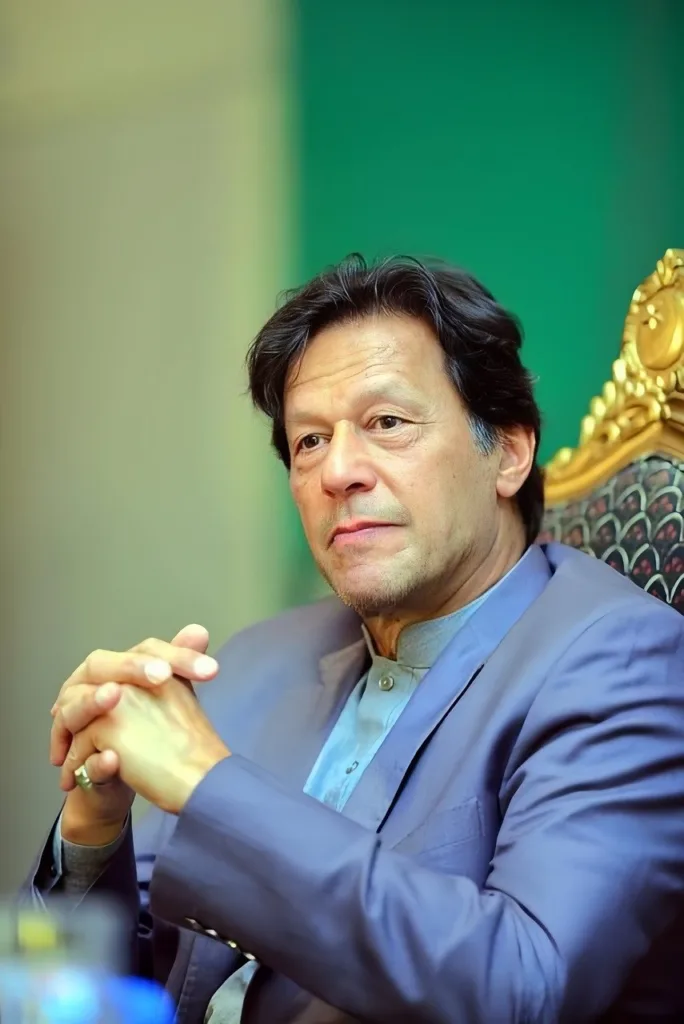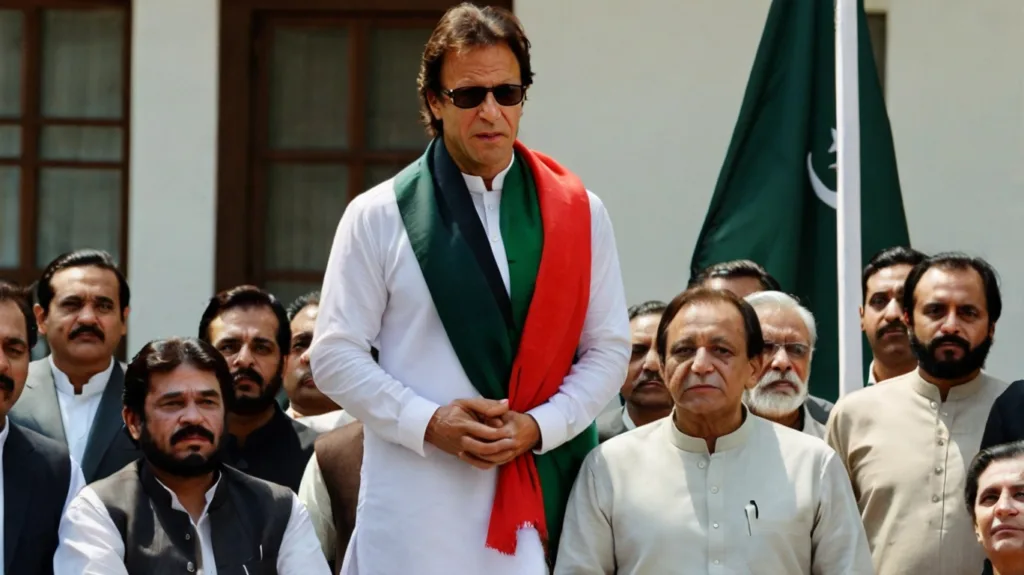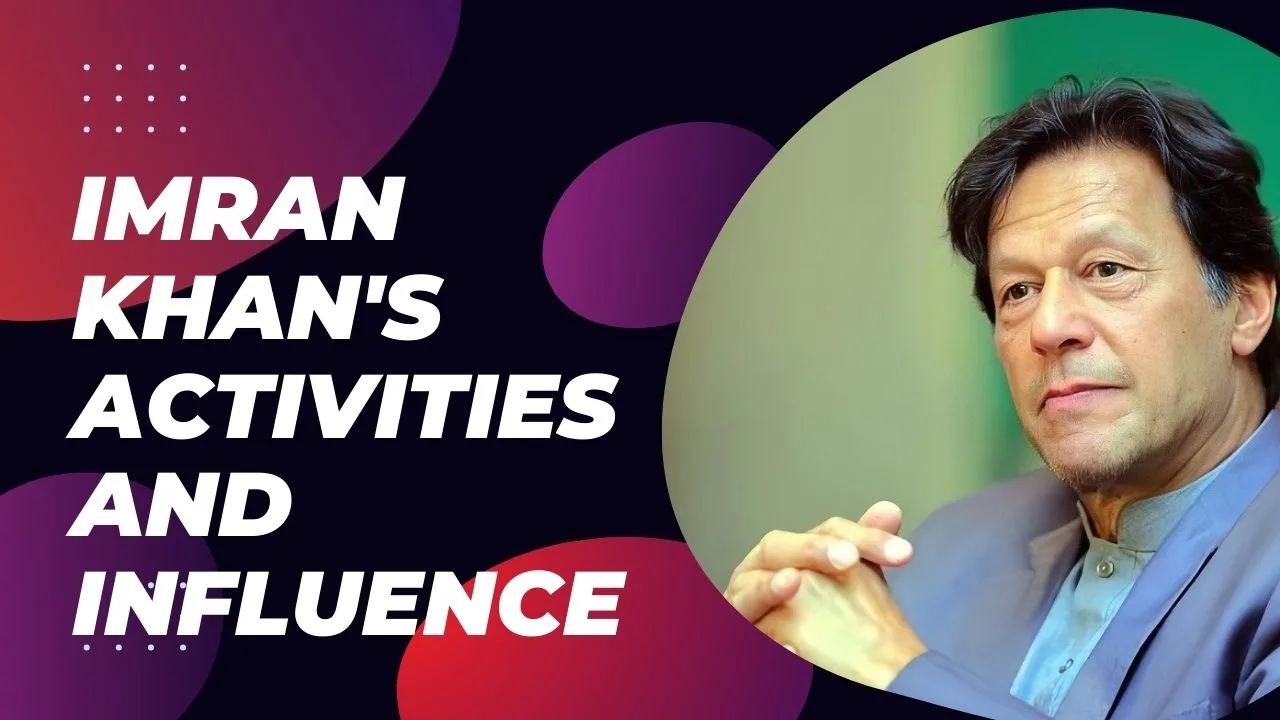Imran Khan:Political Landscape and Leadership
Imran Khan, the former cricket star turned politician, is one of Pakistan’s most influential figures. Known for his charismatic leadership and dedication to social and political reform, Khan’s journey from the cricket pitch to the highest office in Pakistan has been remarkable. This blog post explores Imran Khan’s current activities, his political strategies, recent challenges, and the impact of his leadership on Pakistan and the broader international community.
Political Landscape and Leadership:
Prime Ministerial Tenure:
Imran Khan served as Pakistan’s Prime Minister from August 2018 to April 2022. His tenure was marked by ambitious efforts to combat corruption, improve the economy, and strengthen Pakistan’s international relations. His government launched several social welfare programs, such as the Ehsaas Program, to reduce poverty and provide financial assistance to the underprivileged.
Despite these efforts, Khan’s tenure faced significant challenges, including economic difficulties, political opposition, and a global pandemic that strained the country’s resources. His leadership style, characterized by a blend of populism and reformist zeal, earned him both staunch supporters and fierce critics.
Opposition and Political Challenges:
After his Prime Minister tenure, Khan plays a pivotal role in Pakistani politics. As the leader of the Pakistan Tehreek-e-Insaf (PTI) party, he remains a vocal critic of the current government. Khan’s opposition to the ruling coalition has centered on issues like governance, corruption, and economic mismanagement. He has been actively engaging with the public through rallies, social media, and press conferences to voice his concerns and advocate for his vision of Pakistan’s future.

Current Activities: Legal Battles
One of the most significant aspects of Imran Khan’s current activities involves legal battles. Khan faces multiple cases, ranging from allegations of financial impropriety to political accusations. These legal challenges are part of a broader political struggle in Pakistan, where legal proceedings often intertwine with political rivalries.
Khan’s legal team has been vigorously defending him against these charges, arguing that they are politically motivated attempts to undermine his influence and discredit his leadership. These ongoing legal battles have become a focal point of Khan’s current activities, shaping much of his political narrative and public engagement.
Public Engagement and Social Media:
Imran Khan has effectively utilized social media platforms to maintain his connection with the Pakistani public. His Twitter account, with millions of followers, is a primary tool for communicating his views, announcing policy positions, and mobilizing supporters. Khan’s social media presence ensures that he remains a significant figure in Pakistani politics, influencing public opinion and political discourse.
Additionally, Khan continues to hold public rallies and events, where he addresses his supporters and outlines his vision for Pakistan. These events are crucial for maintaining his political relevance and galvanizing his base.

International Relations:
Diplomatic Engagements:
Even after his tenure as Prime Minister, Imran Khan remains an influential figure in international relations. His diplomatic engagements focus on issues such as regional stability, economic cooperation, and climate change. Khan’s efforts to strengthen ties with countries like China, Saudi Arabia, and Turkey reflect his vision of a more interconnected and economically resilient Pakistan.
Advocacy on Global Platforms:
Khan is also known for his advocacy on global platforms, addressing issues like Islamophobia, climate change, and the economic challenges faced by developing countries. His speeches at the United Nations and other international forums have highlighted Pakistan’s stance on these critical issues, aiming to foster a more inclusive and equitable global order.
Economic and Social Initiatives:
Economic Reforms:
Imran Khan’s economic agenda remains a significant aspect of his current activities. He continues to advocate for economic reforms that focus on reducing corruption, improving tax collection, and encouraging foreign investment. Khan’s economic vision aims to create a more sustainable and self-reliant Pakistani economy.
Social Welfare Programs:
Khan’s commitment to social welfare programs continues beyond his premiership. He remains actively involved in initiatives aimed at improving healthcare, education, and social security in Pakistan. Programs like the Ehsaas Emergency Cash program, launched during his tenure, are ongoing efforts to support the most vulnerable segments of society.
Challenges and Criticisms:
- Economic Difficulties: Despite his efforts, Khan’s economic policies have faced criticism. Issues such as inflation, unemployment, and a rising cost of living have been significant challenges. Critics argue that his government’s economic management fell short in addressing these issues effectively.
- Political Opposition: Khan’s political journey has been marked by intense opposition. His detractors accuse him of failing to deliver on key promises and criticize his approach to governance. The political landscape in Pakistan is highly polarized, and Khan’s role as an opposition leader continues to be a contentious one.
- Future Prospects: Given his enduring popularity and the ongoing political dynamics in Pakistan, there is speculation about Khan’s potential political comeback. His ability to mobilize supporters and his influence within the PTI make him a formidable force in Pakistani politics. Whether he seeks to return to power or continues to shape the political discourse from the opposition, Khan’s impact on Pakistan’s future remains significant.
- Vision for Pakistan: Khan’s vision for Pakistan focuses on creating a more just, equitable, and prosperous society. His emphasis on anti-corruption measures, economic reforms, and social welfare programs reflects his commitment to transforming Pakistan. As he navigates the challenges and opportunities ahead, Khan’s leadership will be crucial in shaping the country’s trajectory.
Conclusion:
Imran Khan’s current activities encompass a wide range of political, legal, and social engagements. From navigating complex legal battles to advocating for economic reforms and maintaining a strong public presence, Khan remains a central figure in Pakistani politics. His leadership continues to inspire and polarize in equal measure, reflecting the complexities of Pakistan’s political landscape. As Khan moves forward, his actions and decisions will undoubtedly play a critical role in determining Pakistan’s future.
